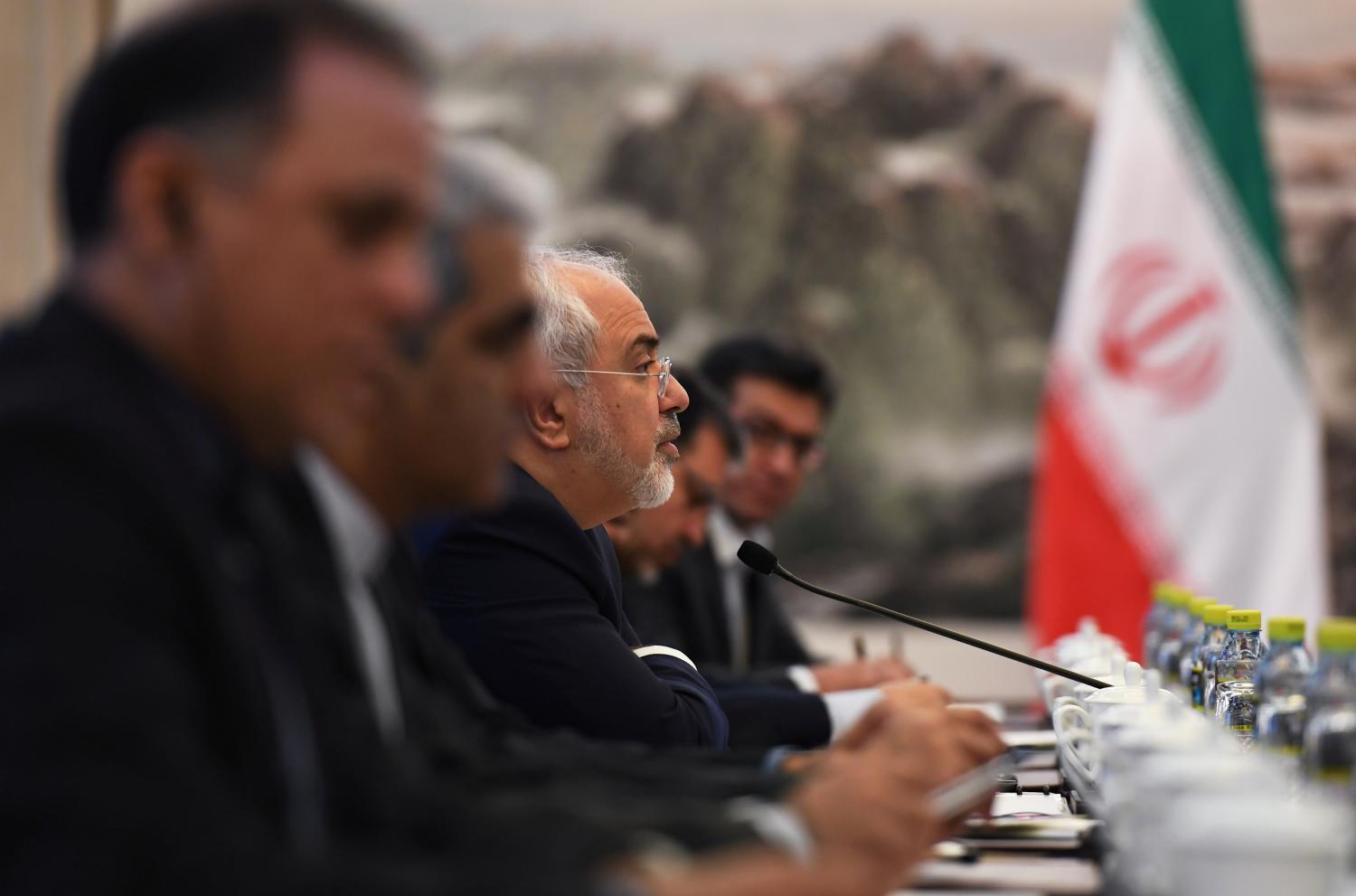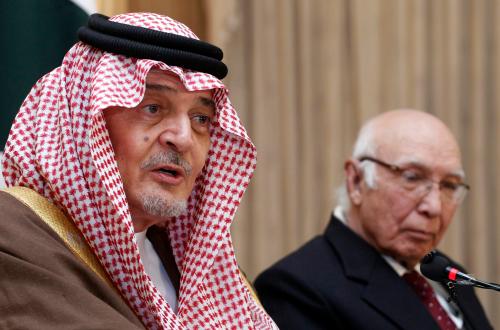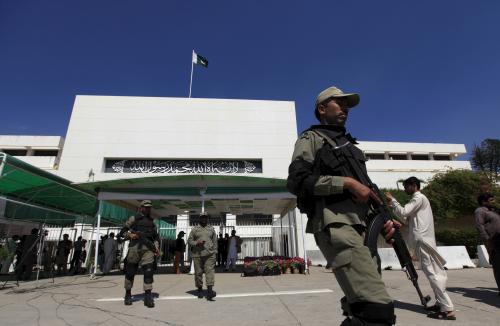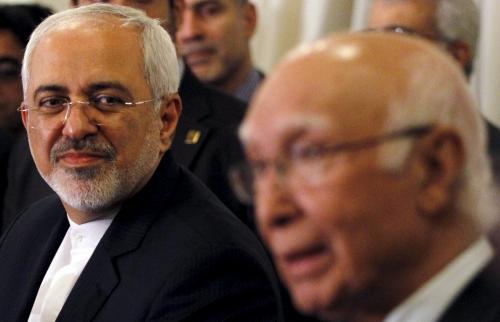The Iran nuclear deal is in trouble. President-elect Donald Trump has been a sharp critic of the Joint Comprehensive Plan of Action (JCPOA). What will the Kingdom of Saudi Arabia—also a critic of the JCPOA—do if the deal is derailed and Iran resumes developing a nuclear arsenal?
A new book has some significant data to answer this question. Norman Cigar, a longtime intelligence expert, recently published “Saudi Arabia and Nuclear Weapons: How do countries think about the bomb?” based on a thorough investigation of all the literature published by Saudi authors on the subject of nuclear proliferation since the issue first got attention in the Kingdom decades ago. By using Arabic sources not generally available to Western scholars, this book is innovative and insightful. Cigar pays special attention to what members of the royal family have been quoted as saying on nuclear issues in the Arabic language press in the kingdom.
Professor Cigar reminds the reader that the nuclear issue in the Middle East began in Israel. Saudi concerns about nuclear weapons first focused on Israel. In July 1990 King Fahd told Egyptian President Hosni Mubarak that “Israel is now our main concern” on the nuclear front, according to a report Cigar unearthed. Of course a month later, Iraq became Fahd’s top concern when it invaded Kuwait and threatened the kingdom.
After Operation Desert Storm, the Israeli threat reverted to being the top priority for the Saudis, according to Cigar. In 2006, for example, Prince Muqrin—then chief of Saudi intelligence and later briefly Crown Prince—said “Israel’s possession of a nuclear arsenal is considered the biggest permanent strategic threat to Gulf security in the short and mid term.” Muqrin added that it was the Israeli arsenal that was spurring Iran to become a nuclear power. Prince Nayef—the powerful Interior Minister—also is quoted by Cigar as saying in 2006 that Israel’s posture justified a Saudi counter.
Today, Iran has become the Saudi priority, although Israel remains very much on Saudi strategic thinking, according to this book. Based on his meticulous research, Cigar concludes that if Iran abandons the constraints in the JCPOA for whatever reason, King Salman will seek a Saudi bomb. That’s not a surprising conclusion, but this book backs it up with serious data.
Saudi Arabia lacks the technical expertise and industrial base to build its own bomb. Even if it embarks on a crash program, it would take years if not decades to get the bomb.
[I]f Riyadh is confronted with a collapse of the Iranian nuclear deal, it will need to revisit its Pakistan connection.
Consequently, for three decades there have been persistent reports of a secret understanding between the Saudis and Pakistan that Pakistan will provide the kingdom with the bomb if the kingdom needs it. Of course neither Riyadh or Islamabad speaks publicly about this. But occasionally they have hinted at the possibility.
King Salman’s relationship with Pakistan got off to a rocky start after he ascended to the throne over the Saudi war in Yemen. Prime Minister Nawaz Sharif turned down the King’s request for Pakistani military forces to join the conflict. This, despite years of Saudi aid to Pakistan, intense military and intelligence cooperation over many decades, and the fact that the Saudis provided Sharif refuge when he was ousted in a military coup in 1999.
Sharif was not persuaded that the King and his Defense Minister (and son) Prince Muhammad bin Salman had a strategy for the war or a viable end game. The Pakistani parliament voted unanimously to stay out of the conflict and backed up Sharif. The powerful Pakistani army chief agreed.
So if Riyadh is confronted with a collapse of the Iranian nuclear deal, it will need to revisit its Pakistan connection. Pakistan just got a new Chief of Army Staff last month. General Qamar Javid Bajwa is the new commander of the Pakistani military, including its nuclear arsenal. Pakistan has the fastest-growing nuclear weapons program in the world. It’s a good bet the general will visit the kingdom early in his tenure. What is discussed behind the closed doors of the royal palace will be the subject of much interest.
The Brookings Institution is committed to quality, independence, and impact.
We are supported by a diverse array of funders. In line with our values and policies, each Brookings publication represents the sole views of its author(s).









Commentary
Iran and the bomb: What would Saudi Arabia do?
December 1, 2016